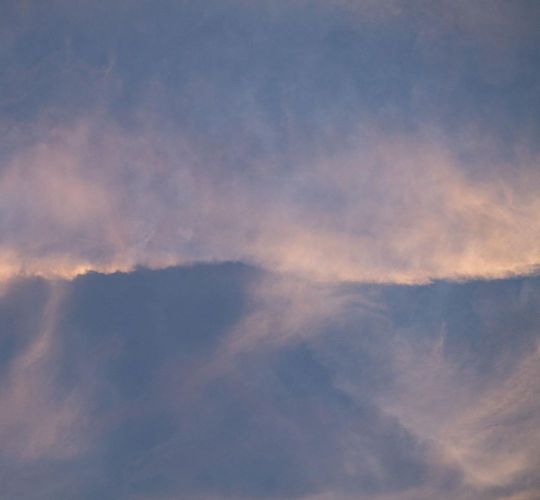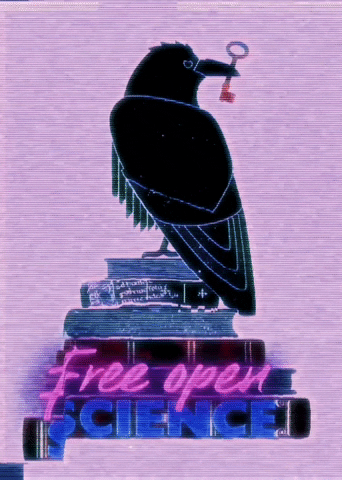#openscience
Explore tagged Tumblr posts
Text
Free online courses for bioinformatics beginners
🔬 Free Online Courses for Bioinformatics Beginners 🚀
Are you interested in bioinformatics but don’t know where to start? Whether you're from a biotechnology, biology, or computer science background, learning bioinformatics can open doors to exciting opportunities in genomics, drug discovery, and data science. And the best part? You can start for free!
Here’s a list of the best free online bioinformatics courses to kickstart your journey.
📌 1. Introduction to Bioinformatics – Coursera (University of Toronto)
📍 Platform: Coursera 🖥️ What You’ll Learn:
Basic biological data analysis
Algorithms used in genomics
Hands-on exercises with biological datasets
🎓 Why Take It? Ideal for beginners with a biology background looking to explore computational approaches.
📌 2. Bioinformatics for Beginners – Udemy (Free Course)
📍 Platform: Udemy 🖥️ What You’ll Learn:
Introduction to sequence analysis
Using BLAST for genomic comparisons
Basics of Python for bioinformatics
🎓 Why Take It? Short, beginner-friendly course with practical applications.
📌 3. EMBL-EBI Bioinformatics Training
📍 Platform: EMBL-EBI 🖥️ What You’ll Learn:
Genomic data handling
Transcriptomics and proteomics
Data visualization tools
🎓 Why Take It? High-quality training from one of the most reputable bioinformatics institutes in Europe.
📌 4. Introduction to Computational Biology – MIT OpenCourseWare
📍 Platform: MIT OCW 🖥️ What You’ll Learn:
Algorithms for DNA sequencing
Structural bioinformatics
Systems biology
🎓 Why Take It? A solid foundation for students interested in research-level computational biology.
📌 5. Bioinformatics Specialization – Coursera (UC San Diego)
📍 Platform: Coursera 🖥️ What You’ll Learn:
How bioinformatics algorithms work
Hands-on exercises in Python and Biopython
Real-world applications in genomics
🎓 Why Take It? A deep dive into computational tools, ideal for those wanting an in-depth understanding.
📌 6. Genomic Data Science – Harvard Online (edX) 🖥️ What You’ll Learn:
RNA sequencing and genome assembly
Data handling using R
Machine learning applications in genomics
🎓 Why Take It? Best for those interested in AI & big data applications in genomics.
📌 7. Bioinformatics Courses on BioPractify (100% Free)
📍 Platform: BioPractify 🖥️ What You’ll Learn:
Hands-on experience with real datasets
Python & R for bioinformatics
Molecular docking and drug discovery techniques
🎓 Why Take It? Learn from domain experts with real-world projects to enhance your skills.
🚀 Final Thoughts: Start Learning Today!
Bioinformatics is a game-changer in modern research and healthcare. Whether you're a biology student looking to upskill or a tech enthusiast diving into genomics, these free courses will give you a strong start.
📢 Which course are you excited to take? Let me know in the comments! 👇💬
#Bioinformatics#FreeCourses#Genomics#BiotechCareers#DataScience#ComputationalBiology#BioinformaticsTraining#MachineLearning#GenomeSequencing#BioinformaticsForBeginners#STEMEducation#OpenScience#LearningResources#PythonForBiologists#MolecularBiology
9 notes
·
View notes
Text

We are pleased to share the latest publication of former SAVI Brunel doctoral intern Dr Ségolène Guérin (nowat Université du Littoral Côte d’Opale, France).
Clear communication and definitions that are widely accepted are vital to the development of all fields of scientific endeavour – especially so in rapidly-growing, interdisciplinary areas such as functional near-infrared spectroscopy (fNIRS), in which researchers represent disciplines as diverse as neuroscience, psychology and engineering. To address this challenge, 76 researchers representing a range of disciplines joined forces to create a community-driven glossary of essential fNIRS terms.
What’s inside: ✅ 300+ terms are defined ✅ Six categories: analysis, experimental design, hardware, neuroscience, mathematics and physics ✅ Abbreviations, symbols, references, alternative definitions, figures and much more
🔗 https://doi.org/10.1117/1.NPh.12.2.027801
Congrats to Ségolène and her colleagues on this living, open-access resource designed to enhance scientific communication, support education and lower barriers for researchers entering the field of fNIRS. 👏
#fNIRS#Neuroscience#Neuroimaging#Neurophysiology#OpenScience#ScientificCommunication#GlossaryProject#BrainImaging#InterdisciplinaryResearch
0 notes
Text
Unraveling the Mysteries of COVID-19 Through Data Science
In the past few years, our world has been upended by the COVID-19 pandemic, affecting millions of lives and reshaping the future of public health, economies, and how we connect as a global community. Amidst these challenges, data science has emerged as a beacon of hope, offering innovative solutions and deep insights into the virus that has changed our way of life. The Power of Genomic…

View On WordPress
#Biopython#CollaborativeScience#Covid-19#DataScience#DataVisualization#Genomics#OpenScience#PandemicResponse#PublicHealth#VaccineDevelopment#ViralGenomics
0 notes
Text

Our Frontiers in Molecular Neuroscience review explores how microRNAs (miRNAs) could transform early diagnosis of neurodegenerative diseases 🧠
🧬 Also covers aging & protein PTMs!
📖 https://doi.org/10.3389/fnmol.2024.1386735
#Neuroscience #microRNA #Neurodegeneration #Biomarkers #Alzheimers #OpenScience
#academia#open science#research#review#neurodegeneration#neurobiology#biomarkers#posttranslationalmodifications#aginganddisease#aging#alzheimers#parkinsons#amyotrophic lateral sclerosis#multiplesclerosis#huntingtonsdisease#diagnosis
2 notes
·
View notes
Text



nasa
The International Space Station (@ISS) offers a vantage point like no other. Astronauts aboard the ISS captured these stunning cloud formations as the space station orbited above Earth. Love watching the clouds go by? Download the Globe Observer app on your mobile device and you can join the @GLOBEprogram community and contribute important scientific data to NASA and GLOBE, your local community, and students and scientists worldwide. By photographing clouds, recording sky observations, and comparing them with NASA satellite data, you can help scientists gain a new perspective on clouds that satellites just can't provide: from the ground looking up! This new perspective will help refine satellite-derived models and enhance scientific understanding of Earth's atmosphere. The app is available on the App Store and Google Play. Image descriptions: White and pink clouds cover Earth as the space station orbited above the coast of the Red Sea, the northernmost tropical sea in the world. A roll-out solar array is displayed in the bottom right corner of the image. Layers of clouds cover North Africa. They have a swirl like appearance and are grouped over the surface. A translucent sheet of clouds cover the sky above North Africa. They divide the image horizontally, glowing in shades of pink and gold. To the bottom right of the image, one of the station's roll-out solar arrays peeks through. Credit: NASA #NASA #ISS #InternationalSpaceStation #SpaceStation #Earth #Clouds #Astronauts #Photography #Nature #CitizenScience #OpenScience
3 notes
·
View notes
Text
Global STEM Education in K-12 Market Set to Transform – Analysis Through 2032
STEM Education In K-12 Market was valued at USD 51.42 billion in 2023 and is expected to reach USD 168.63 billion by 2032, growing at a CAGR of 14.17% from 2024-2032.
STEM Education in K-12 Market is experiencing a significant surge as schools across the USA and Europe prioritize future-ready skills. Driven by the increasing demand for science, technology, engineering, and math proficiency, educational institutions are rapidly integrating STEM-focused curricula, tools, and platforms into early learning environments.
STEM Education in K-12 Market Expands Across the US with Federal Funding Support
STEM Education in K-12 Market is being fueled by government initiatives, private sector partnerships, and the growing emphasis on digital literacy. As industries evolve with automation and AI, educators are focused on nurturing critical thinking and innovation in students from a young age, preparing them for the careers of tomorrow.
Get Sample Copy of This Report: https://www.snsinsider.com/sample-request/6654
Market Keyplayers:
Activate Learning (OpenSciEd K–12 Curriculum, OpenSciEd Elementary Science Kits)
Amplify Education, Inc. (Amplify Science, mCLASS)
Bedford, Freeman & Worth Publishing Group, LLC (Physics for the IB Diploma, Principles of Life)
Carolina Biological Supply Company (STC Elementary Curriculum, Building Blocks of Science)
Cengage Learning (MindTap for STEM, National Geographic Learning Science)
Discovery Education (STEM Connect, Techbook for Science)
EduCo International (English for STEM, Pathways to STEM Success)
Houghton Mifflin Harcourt (Into Science, ScienceFusion)
Kendall Hunt Publishing Company (STEM Research for Students Volume 1, Pathways to Science Literacy)
Lab-Aids (Groundwater Contamination Trouble in Fruitvale, Light Bulbs Energy Efficiency Kit)
McGraw Hill (Inspire Science, Glencoe Science)
OpenSciEd (Middle School Science Units, Curriculum Implementation Toolkit)
PASCO Scientific (STEM Sense Coding with Sensors, Wireless Science Sensors)
Savvas Learning (Experience Chemistry, Elevate Science)
School Specialty, LLC (FOSS Science Curriculum, Delta Science Modules)
Market Analysis
The STEM education market in K-12 is gaining momentum due to workforce demands, global competitiveness, and evolving academic standards. Schools are adopting hands-on learning models, coding bootcamps, robotics programs, and virtual STEM labs. The U.S. is leading in policy support and funding, while Europe is innovating through interdisciplinary and equity-focused STEM programs. Public-private collaborations are accelerating the pace of STEM integration, particularly in underserved communities.
Market Trends
Rise of EdTech platforms offering interactive STEM content
Integration of AI and robotics into classroom curricula
Increased focus on coding and computer science from elementary levels
Virtual and augmented reality enhancing STEM learning experiences
Gender-inclusive and diversity-driven STEM programs
Maker spaces and STEM labs fostering experiential learning
Teacher training programs emphasizing STEM pedagogy
Market Scope
With the shift toward digital-first education, the scope of STEM in K-12 is broader than ever. Schools are moving beyond textbooks, investing in immersive and accessible learning tools that inspire creativity and problem-solving.
Game-based learning modules for science and math
STEM kits for at-home and hybrid learning models
Partnerships with tech companies for real-world exposure
Competency-based assessments replacing traditional exams
Government-funded pilot programs in rural and urban areas
STEM festivals and competitions promoting engagement
Forecast Outlook
The STEM Education in K-12 Market is on a transformative path, shaped by innovation, accessibility, and the evolving needs of the global workforce. With growing awareness among educators, policymakers, and parents, the market is expected to continue its upward trajectory. Digital equity, curriculum flexibility, and career-linked learning will be key drivers, especially across tech-forward regions of the USA and Europe. The future of K-12 education will center around equipping students with the skills to thrive in an interconnected, high-tech world.
Access Complete Report: https://www.snsinsider.com/reports/stem-education-in-k-12-market-6654
Conclusion
The momentum behind STEM Education in K-12 is more than a trend—it’s a strategic movement shaping the next generation of thinkers, builders, and innovators. Across classrooms in San Francisco to labs in Berlin, students are exploring, experimenting, and solving real-world challenges.
Related Reports:
US businesses adopting sales training software solutions
US education sector ERP software demand
About Us:
SNS Insider is one of the leading market research and consulting agencies that dominates the market research industry globally. Our company's aim is to give clients the knowledge they require in order to function in changing circumstances. In order to give you current, accurate market data, consumer insights, and opinions so that you can make decisions with confidence, we employ a variety of techniques, including surveys, video talks, and focus groups around the world.
Contact Us:
Jagney Dave - Vice President of Client Engagement
Phone: +1-315 636 4242 (US) | +44- 20 3290 5010 (UK)
#STEM Education in K-12 Market#STEM Education in K-12 Market Scope#STEM Education in K-12 Market Growth#STEM Education in K-12 Market Trends
0 notes
Text
Online Consumer Research: The Critical Role of Data Quality
In the expanding field of online consumer research, vast volumes of data are collected through web surveys, social media analytics, and e-commerce behavior tracking. However, while the quantity of data continues to grow exponentially, the quality of that data is often underreported or inadequately described in academic and industry research.
#OnlineConsumerResearch #DataQuality #ConsumerBehavior #DigitalMarketing #BigDataEthics #SurveyResearch #MarketResearch #SocialMediaAnalytics #Reproducibility #DataIntegrity #ResearchMethods #OpenScience
visit: https://business-strategy-conferences.scifat.com/
Nomination link: https://business-strategy-conferences.scifat.com/award-nomination/?ecategory=Awards&rcategory=Awardee
Registration link: https://business-strategy-conferences.scifat.com/award-registration/
visit : youtube: @bussinessstrategy250
Twitter: twitter.com/awards32874
blogger: bussinessanagement.blogspot.com
tumblr: https://www.tumblr.com/blog/strategyawards
instragram: https://www.instagram.com/stra.teg614/
0 notes
Text
So proud of our team's embrace of transparent and early sharing of data, ideas and protocols. The future is bright! #openscience https://asapbio.org/announcing-the-winners-of-the-2024-asapbio-poster-competition

Here is a link to the poster: Evolutionary diversification of protein-protein interaction interfaces: A case study on an NLR immune receptor network #ASAPbio #openscience https://doi.org/10.5281/zenodo.13365607
0 notes
Video
youtube
Rare Autism Mutation: Neurons Starved of Nutrients #sciencefather
Discover how the SLC7A5 gene mutation impacts neuron development and energy sources in the brain. This mutation can lead to serious conditions such as microcephaly and motor difficulties, shedding light on the critical role of metabolic balance in neurological health. Learn about groundbreaking research that explores personalized treatment options for autism, tailored to individual metabolic profiles. This video delves into cutting-edge science that could revolutionize how we approach neurological disorders. #SLC7A5 #NeuronDevelopment #Microcephaly #MotorDifficulties #AutismResearch #GeneticMutation #PersonalizedMedicine #Neuroscience #MetabolicProfiles #AcademicResearch #CollaborativeResearch #PhDLife #Postdoc #ScienceCommunication #STEM #ResearchLife #OpenScience #AcademicWriting #Innovation #grantspass #DataScience #Publication #PeerReview#SustainableResearch
International Young Scientist Awards
Nomination Link: https://youngscientistawards.com/award-nomination/?ecategory=Awards&rcategory=Awardee
Website link: youngscientistawards.com Contact Us: [email protected]
Social Media: Twitter : https://twitter.com/youngsc06963908
Linkedin- : https://www.linkedin.com/in/shravya-r...
Pinterest : https://in.pinterest.com/youngscienti...
Blog : https://youngscientistaward.blogspot....
Tumblr : https://www.tumblr.com/blog/shravya96
0 notes
Text
The Devil Lost In Details: Tasmanian Devil Cancer Transmission Is NOT Slowing | Cambridge University, published by RoyalSociety #OpenScience
by @GrrlScientist
1 note
·
View note
Text
vimeo
Join middle school teachers and parenting adults from Jefferson County Public Schools (JCPS), in Louisville, Kentucky, for a discussion focused on the impact a co-design process made in family engagement during our Carnegie Family Science Project. This panel will discuss: the use of co-design principles to build virtual reality experiences based upon OpenSciEd curricular units. the trials, tribulations, and successes of incorporating co-design practices which increase opportunities and outcomes. Participants will . . . walk away with key elements related to NCFL’s implementation of co-design principles in programming, and receive practical tips from panelists to help them get started with incorporating the co-design model in their programming.
0 notes
Text
my university's library doesnt have a pdf copy of the dsm so guess who now gets to check old lecture slides on my harddrive for diagnostic criteria from the official dsm translation so i can compare them to the english dsm pdf i DO have to try and cite the dsm as a primary source. academia would be so much more fun if we lived in an OpenScience utopia.
not my assignment currently looking like a james somerton script
#dilling et al WILL NOT make it into this assignment if i can help it#it's primary sources or bust over here
2 notes
·
View notes
Text

Sci-Hub
#art#illustration#crazy#science#vhs#vaporwave#cyberpunk#cyber#synthwave#retrowave#scihub#metatryps#openscience
314 notes
·
View notes
Quote
This study offers a succinct vade mecum on how to benefit from the open science approach to scholarly communication, no matter whether in natural or in humanistic and social sciences.
Reaping the benefits of open science in scholarly communication

1 note
·
View note
Text
Setkání na téma Open Science v Národní technické knihovně
Na začátku června se v Národní technické knihovně konala první česká událost s názvem „National EOSC Tripartite Event“ následovaná Národním dnem otevřené vědy. Obě akce měly za cíl přivést k jednomu stolu všechny zúčastněné strany a poskytnout jim aktuální informace o evropské politice v oblasti otevřené vědy a stavu implementace EOSC v České republice.
V rámci příkladů dobré praxe na akci vystoupila také ředitelka Nakladatelství Munipress Alena Mizerová, která prezentovala aktivity Masarykovy univerzity v oblasti Diamond Open Access.
Otevřený přístup k vědeckým publikacím (Open Access) je totiž jedním z pilířů otevřené vědy, takže téma Open Access v Česku nemohlo chybět. Z našeho pohledu se bohužel přehnaně zdůrazňovaly tzv. transformační dohody (transformative agreements), které jsou bezesporu významné a aktuální, diskuzi kolem Open Access však nelze redukovat jen na ně. (Více o tomto tématu v některém z dalších příspěvků.)
Od roku 2020 se mluví o přístupu Diamond Open Access, což je model vědeckého publikování, v němž časopisy nevybírají poplatky ani od autorů, ani od čtenářů (více např. zde). Právě tento způsob se ukazuje jako nosný pro ideály open science a získává si větší a větší podporu v rámci Evropy (viz nedávné rozhodnutí Rady EU o otevřeném vědeckém publikování).
Masarykova univerzita vydává 45 „diamantových open access“ časopisů, z nichž mnohé mají velmi dobrou pověst a jsou indexovány předními vědeckými platformami. Z diskuze, která se na toto téma rozvinula, vyplynulo, že by bylo velmi vhodné „diamantový“ přístup podporovat i v Česku, ale chybí data o financování těchto časopisů. Munipress se v tomto ohledu rozhodl hozenou rukavici zdvihnout, spojit síly s dalšími českými vydavateli „diamatových“ odborných časopisů a chybějící data poskytnout. Věříme, že to bude další krok na cestě nejen k uznání, ale také k podpoře Diamond Open Access přístupu v České republice.
0 notes
Text

1 note
·
View note